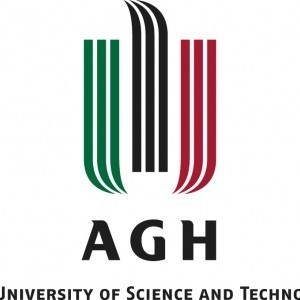Photos of university / #politechnika_warszawska
Electrical Engineering at Warsaw University of Technology offers a comprehensive and rigorous education in the design, analysis, and application of electrical systems and electronic devices. The program combines fundamental principles of physics and mathematics with practical skills in circuit design, signal processing, power systems, control systems, telecommunications, and automation. Students acquire a solid theoretical foundation complemented by hands-on laboratory work and project-based learning, preparing them for diverse careers in industry, research, and development. The curriculum emphasizes modern technologies, sustainable energy solutions, and innovative approaches to engineering challenges. Throughout the studies, students develop critical problem-solving abilities, teamwork, and project management skills essential for effective professional practice. The program also encourages engagement with cutting-edge research and participation in international exchanges, fostering a global perspective. Graduates of the Electrical Engineering program are well-equipped to contribute to advancements in smart grids, renewable energy sources, robotics, and intelligent systems. They find employment in energy companies, electronics manufacturers, telecommunication firms, automation industries, and governmental agencies. The faculty discipline is renowned for its scientific research, and students have access to state-of-the-art laboratories and technical facilities. The curriculum is regularly updated to include recent technological developments, ensuring graduates are prepared for the evolving demands of the modern electrical engineering landscape. Upon completion, students receive a Master's degree, opening doors to expert roles and doctoral studies. The Electrical Engineering program at Warsaw University of Technology aims to produce highly qualified engineers who can innovate, lead, and shape the future of technological progress in Poland and worldwide.
Electrical Engineering at Warsaw University of Technology offers a comprehensive curriculum designed to equip students with a solid foundation in the principles and applications of electrical systems. The program covers a wide range of topics, including electrical circuits, power systems, electronics, control systems, telecommunications, and electromagnetism. Students gain practical skills through laboratory work, project development, and internships, preparing them for careers in industry, research, and development.
The curriculum emphasizes both theoretical knowledge and hands-on experience. In the initial years, students study fundamental courses such as circuit theory, programming, mathematics, and physics. As they progress, they focus on specialized subjects like digital systems, microprocessors, power electronics, and signal processing. The program also includes courses on renewable energy sources, smart grids, automation, and robotics, reflecting current technological trends and industry needs.
Throughout the program, students have opportunities to participate in laboratory classes that develop their technical skills and understanding of real-world applications. The university fosters a collaborative environment, encouraging students to work on team projects, participate in experimental research, and engage with industry partners through internships and industry-sponsored projects.
Graduates of the Electrical Engineering program at Warsaw University of Technology are well-prepared for employment in various sectors, including energy, electronics manufacturing, telecommunications, automation, and consulting. They also have a strong foundation for further academic pursuits, such as master's and doctoral studies. The programme's curriculum is regularly updated to incorporate the latest technological advancements and industry standards, ensuring that graduates remain competitive in the evolving global job market.
Students benefit from the university's extensive facilities, including modern laboratories, innovation centers, and access to cutting-edge technological resources. The program aims to develop not only technical competencies but also critical thinking, problem-solving, and communication skills, which are essential for leadership roles in the engineering sector. Overall, the Electrical Engineering programme at Warsaw University of Technology prepares students to contribute effectively to technological innovation and sustainable development in the electrical engineering field.
Program requirements for the Master’s Degree in Electrical Engineering at Warsaw University of Technology include a comprehensive set of prerequisites designed to ensure students have the foundational knowledge necessary for advanced studies. Applicants are typically required to hold a Bachelor’s degree in Electrical Engineering, Electronics, or a related field from an accredited institution. Proficiency in mathematics, including calculus, linear algebra, and differential equations, is essential, as these form the basis of most electrical engineering analyses and design. Additionally, candidates should demonstrate knowledge of physics, particularly electromagnetism and circuit theory, which are core to understanding electrical systems.
Applicants are often expected to have some experience with programming languages such as C, C++, or MATLAB, to facilitate coursework in control systems, signal processing, and automation. Knowledge of basic electrical circuit design and analysis, including the use of simulation software, is also preferred. For international students, proof of English language proficiency through recognized tests such as TOEFL or IELTS may be required.
The university may assess applicants through their academic records, motivation letters, and interviews, especially to evaluate their research interests and compatibility with the program's specialization tracks. Some specializations might have additional requirements, such as portfolio reviews or entrance exams in specific subjects.
Prior research experience or participation in relevant projects can enhance an applicant's chances of admission but is not always mandatory. Once admitted, students are expected to fulfill coursework commitments covering advanced electrical engineering topics, engage in laboratory work, and complete a thesis or final project under faculty supervision.
Additionally, proficiency in utilizing modern electrical engineering software tools, staying current with emerging technologies, and demonstrating analytical and problem-solving skills are integral to progressing successfully through the program. Overall, the program’s requirements aim to select candidates with strong academic backgrounds, practical skills, and a clear motivation for pursuing advanced studies in electrical engineering.
The financing of the Electrical Engineering program at the Warsaw University of Technology is primarily based on a combination of public funding, student tuition fees, and additional financial aid options. As a leading technical university in Poland, the Warsaw University of Technology benefits from governmental support aimed at promoting higher education and scientific research, which constitutes a significant source of funding for the program. Public funds are allocated through national and European Union grants, ensuring the continuous development of the curriculum, modernization of laboratory facilities, and support for research activities within the faculty of Electrical Engineering.
Tuition fees for international students enrolled in the program are structured according to the university’s fee schedule and may vary depending on the student's country of origin. These fees contribute to covering the costs associated with education, administrative support, and access to specialized equipment and resources. Polish citizens and residents typically benefit from free or partially subsidized education managed via governmental budget allocations, but there are also options for private funding and scholarships.
The university offers several scholarship schemes to attract talented students and support those with financial hardships. These include merit-based scholarships, need-based aid, and grants from national and international organizations. Additionally, students may access student loans or external funding sources depending on their individual circumstances.
Research projects and partnerships with industry also generate additional revenue, which helps sustain and expand the program's infrastructure and research capabilities. The university encourages students to participate in internships and cooperative education programs with local and international companies, often supported by financial incentives to promote career development.
In summary, the financing structure of the Electrical Engineering program at Warsaw University of Technology is diversified and designed to ensure high-quality education and research opportunities for students while maintaining sustainable financial practices. The combination of governmental support, tuition income, scholarships, research grants, and industry cooperation creates a robust financial ecosystem that underpins the long-term development of the program.
Electrical Engineering at Warsaw University of Technology is a comprehensive technical program designed to prepare students for careers in the rapidly evolving field of electrical and electronic systems. The program combines theoretical foundations with practical skills, enabling graduates to contribute effectively to industries such as energy, telecommunications, automation, and electronics. The curriculum covers a wide range of subjects, including circuit theory, signals and systems, electromagnetics, power engineering, control systems, automation, computer engineering, and digital signal processing. Students also gain hands-on experience through laboratory exercises, project work, and internships, which are integral parts of the program. The program emphasizes the development of problem-solving abilities, innovation, and adaptation to technological advancements. It is taught by experienced faculty members who are active researchers in their fields, ensuring that students are provided with current knowledge and cutting-edge technologies. The curriculum is periodically updated to include the latest developments in electrical engineering, such as renewable energy sources, smart grids, and IoT applications. Warsaw University of Technology's state-of-the-art laboratories and research centers support student learning and research activities. Graduates hold positions in design, research and development, manufacturing, and maintenance of electrical systems and devices. They are also well-prepared for postgraduate studies or entrepreneurial ventures in the technology sector. The program collaborates with industry partners to facilitate internships and real-world projects, reinforcing the practical relevance of the education. Through a combination of coursework, laboratory work, and industry exposure, students develop a broad skill set, including technical expertise, teamwork, communication, and project management. The university's strong ties to the industry and academic excellence make the Electrical Engineering program at Warsaw University of Technology a highly regarded choice for aspiring engineers seeking a solid foundation and diverse career opportunities in electrical and electronic engineering.










